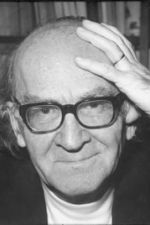 As I remarked to someone on Facebook some years ago, all it takes is a slight tweak in some of our cherished texts in the study of religion to make plain how problematic the work actually is — i.e., how deeply embedded the argument is in a set of presumptions about the world that likely need to be examined instead of simply assumed.
As I remarked to someone on Facebook some years ago, all it takes is a slight tweak in some of our cherished texts in the study of religion to make plain how problematic the work actually is — i.e., how deeply embedded the argument is in a set of presumptions about the world that likely need to be examined instead of simply assumed.
Case in point: consider replacing the words “sacred” and “profane” as follows in this famous passage:
If we should attempt to summarize the result of the descriptions that have been presented in this chapter, we could say that the experience of funny space makes possible the “founding of the world”: where the funny manifests itself in space, the real unveils itself, the world comes into existence. But the irruption of the funny does not only project a fixed point into the formless fluidity of humorless space, a center into chaos; it also effects a break in plane, that is, it opens communication between the cosmic planes (between earth and heaven) and makes possible ontological passage from one mode of being to another. It is such a break in the heterogeneity of humorless space that creates the center through which communication with the trans-serious is established, that, consequently, founds the world, for the center renders orientation possible. Hence the manifestation of the funny in space has a cosmological valence; every spatial asteiophany [Greek asteios, funny] or humorification of a space is equivalent to a cosmogony. The first conclusion we might draw would be: the world becomes apprehensible as world, as cosmos, in the measure in which it reveals itself as a funny world.
Source: Mircea Eliade, Chapter 2 of The Sacred and the Profane: The Nature of Religion (1959).